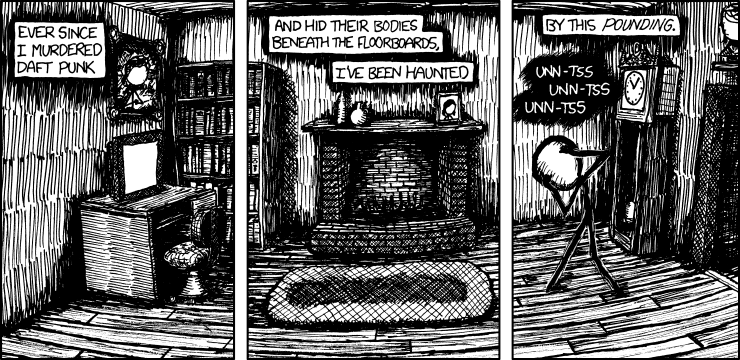
One of the greatest sources of shame I find as a Feminist, indeed, almost daily, is the problem of language. To be precise, my usage of language. The invasive and self protecting manipulation propagated by malestream media makes words which should be unconditionally offensive and oppressive; fair lexical choices.
One particular argument I frequently come across in relation to this point, and has often plagued me with indecision when it comes to
what constitutes offensive language, as a woman and a feminist,, is that of subverting 'original' meaning, thereby transforming it into something amusing, or reasonable to use. It is in the hope of eventually removing the hostility surrounding the pattern of letters, that I most often come across these offensive terms be used. This is an argument which I could not in good conscience say I never let affect me, as, as much as I realise I should not, often my friends, programming, comedians pepper conversation with vocabulary from the misogynistic stock cupboard, 'slag' (exaggerate the 'a' for particular comic effect) 'hoe', 'tit' etcetera, mostly making me laugh. It's not just women this problem is restrained to, this same
'Language guilt' (for the lack of a better term) is often a topic of debate with homosexual friends of mine, who despite being very sensitive and supportive about complex gay rights issues, will often describe negative things as being 'gay'.
Louis C.K takes a rather insightful, and very amusing take on the topic in
'Chewed Up', making the point that childhood introduction to these stock offensive terms without understanding what they precisely meant can lead to life long habits of using the word, in spite of being clearly aware of what it means. It seems then logical that rather than shying away from talking about what these words mean from children, they should be openly explored, giving a full explanation of why it is offensive, who it targets, and therefore why it should not be used; it takes nothing more than common sense to work out that if you let a child know that something is naughty without telling them why, it simply becomes an easy way to gain attention.
The psychology of a Western child and of Western culture seem at times to not be as distantly distinct as it may seem: both are largely needs driven, often impulsive, and with fragmentary thoughts. I realise this is a rather sweeping generalisation, but let the point be considered as a metaphor for grappling the argument, with so many conflicting influences, ideas, and desires, how can one hope to be unwaveringly dogmatic and succeed?
In light of this conclusion, the remedy I more recently have hoped to experiment with in my life, seems both perfect, and impossible. In a malestream, Capitalist society, where a myriad conflicting influences, aspirations and origins of knowledge exist within each member, perhaps one cannot hope for a wholesale grassroots reinvention of individual words (a process which would almost inevitably never conclude) but rather to change the mode in which we describe the world around us, and more particularly the people in it. Labels, titles, minimizers of the essence of our humanity and eradicators of any traces of the individual are destructive, and impossible to fight. Just like the scientist attempting to fight a virus which has a different code within every carrier, they may succeed in one case, but the very next carrier is a different set of codes to crack; so is the futility of challenging individuals on their language choices. The only answer that I therefore can seem to comprehend is to rethink your own, and my own entire language patterns where labelling becomes an irrelevant or carefully managed system whereby people are not described in terms of gender, sexuality, race, religion, or any other corner of society oppressed by offensive labels. If we wish to label, it should be based on behaviour, characteristics, what we know of the individual, avoiding at all costs to begin to use any labels until we do.
I believe there is a innate desire in human psychology to label; it allows easy conclusions for elaborate thoughts, provides amusement, but it most importantly keeps us detached from strangers, simple to those who know us, and shackled in chains by our oppressors.








